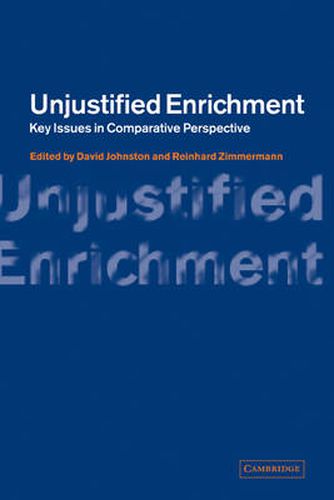Readings Newsletter
Become a Readings Member to make your shopping experience even easier.
Sign in or sign up for free!
You’re not far away from qualifying for FREE standard shipping within Australia
You’ve qualified for FREE standard shipping within Australia
The cart is loading…






Unjustified enrichment has been one of the most intellectually vital areas of private law. There is, however, still no unanimity among civil-law and common-law legal systems about how to structure this important branch of the law of obligations. Several key issues are considered comparatively in this 2002 book, including grounds for recovery of enrichment, defences, third-party enrichment, as well as proprietary and taxonomic questions. Two contributors deal with each topic, one a representative of a common-law system, the other a representative of a civil-law or mixed system. This approach illuminates not just similarities or differences between systems, but also what different systems can learn from one another. In an area of law whose territory is still partially uncharted and whose borders are contested, such comparative perspectives will be valuable for both academic analysis of the law and its development by the courts.
$9.00 standard shipping within Australia
FREE standard shipping within Australia for orders over $100.00
Express & International shipping calculated at checkout
Stock availability can be subject to change without notice. We recommend calling the shop or contacting our online team to check availability of low stock items. Please see our Shopping Online page for more details.
Unjustified enrichment has been one of the most intellectually vital areas of private law. There is, however, still no unanimity among civil-law and common-law legal systems about how to structure this important branch of the law of obligations. Several key issues are considered comparatively in this 2002 book, including grounds for recovery of enrichment, defences, third-party enrichment, as well as proprietary and taxonomic questions. Two contributors deal with each topic, one a representative of a common-law system, the other a representative of a civil-law or mixed system. This approach illuminates not just similarities or differences between systems, but also what different systems can learn from one another. In an area of law whose territory is still partially uncharted and whose borders are contested, such comparative perspectives will be valuable for both academic analysis of the law and its development by the courts.